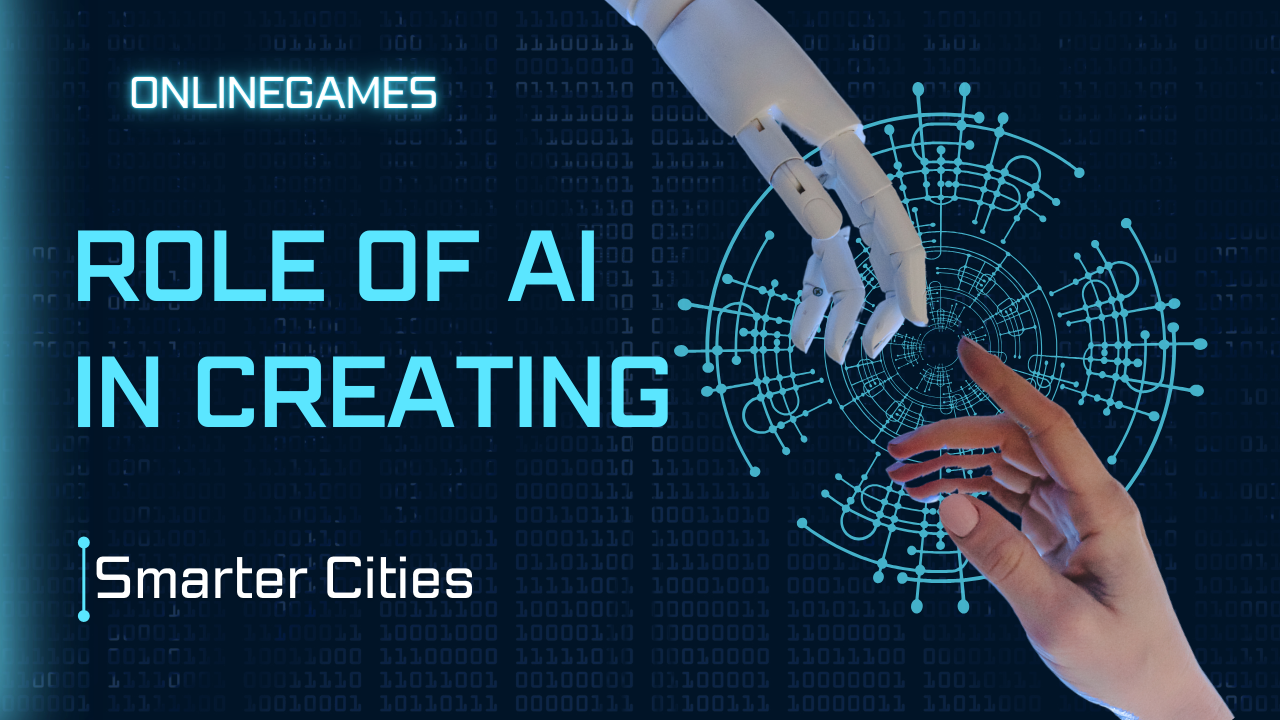In the quest for sustainable urban development, artificial intelligence (AI) emerges as a transformative tool. By harnessing data analytics, machine learning, and automation, AI contributes to the evolution of smarter cities. This article explores how AI technologies enhance urban infrastructure, optimize resource management, and improve the quality of life for residents.
Understanding AI in Urban Context
What is AI in Smart Cities?
AI in smart cities refers to the integration of AI-driven technologies to manage city operations efficiently. It involves collecting and analyzing data from various sources to make informed decisions that enhance urban living conditions.
How AI Works in Smart City Applications
AI processes data from IoT devices, sensors, and citizen interactions to optimize traffic flow, energy consumption, waste management, and public services. Machine learning algorithms enable predictive analytics and real-time responses to urban challenges.
Key Applications of AI in Smart Cities
Transportation and Traffic Management
AI-powered traffic management systems use real-time data to optimize traffic flow, reduce congestion, and enhance public transportation efficiency. Intelligent routing and predictive maintenance improve commuter experiences.
Energy Efficiency and Sustainability
AI enhances energy management by analyzing consumption patterns, optimizing grid operations, and promoting renewable energy integration. Smart grids and automated energy systems contribute to sustainability goals.
Public Safety and Security
AI-driven surveillance systems monitor urban environments for potential threats, enabling proactive responses to emergencies and crime prevention. Facial recognition and predictive policing improve law enforcement efficiency.
Healthcare and Well-being
AI supports healthcare services by analyzing health data, predicting disease outbreaks, and optimizing hospital operations. Telemedicine and AI-powered diagnostics enhance access to healthcare for urban populations.
Urban Planning and Infrastructure Development
AI in Urban Planning
AI algorithms analyze demographic trends, urban growth patterns, and environmental impacts to inform city planning decisions. GIS mapping and spatial analysis tools aid in identifying optimal locations for infrastructure development.
Infrastructure Maintenance
AI-driven predictive maintenance detects infrastructure issues before they escalate, reducing downtime and maintenance costs for roads, bridges, utilities, and public facilities. Automated repair scheduling improves city service reliability.
Ethical Considerations and Challenges
Ethical Issues in AI Deployment
The use of AI in smart cities raises concerns about privacy, data security, and algorithmic bias. Transparent governance frameworks are essential to uphold citizen rights and ensure fair access to AI benefits.
Stakeholder Collaboration
Collaboration between government agencies, tech companies, urban planners, and community stakeholders is crucial for implementing AI solutions that align with city needs and societal values.
Future Outlook and Conclusion
Innovations in Smart City AI
Future advancements may include AI-driven autonomous vehicles, augmented reality for urban design, and AI-powered civic engagement platforms. These innovations promise to further enhance urban resilience and sustainability.
AI plays a pivotal role in shaping smarter cities by optimizing infrastructure, improving service delivery, and fostering sustainable development. Embracing AI technologies with a focus on ethical standards and stakeholder engagement is key to realizing the full potential of smart urban environments.
FAQs About AI in Creating Smarter Cities
How does AI contribute to reducing traffic congestion?
AI analyzes real-time traffic data to optimize signal timings, reroute vehicles, and promote the use of alternative transportation modes, reducing congestion in urban areas.
What are some examples of AI applications in urban sustainability?
AI helps cities manage water resources, reduce energy consumption through smart grids, and optimize waste management practices to enhance environmental sustainability.
Is AI adoption in cities cost-effective?
While initial investments in AI infrastructure may be significant, long-term savings from improved efficiency and reduced operational costs justify the investment in creating smarter cities.
How does AI improve urban healthcare services?
AI supports healthcare providers in diagnosing diseases early, managing patient data securely, and optimizing hospital workflows to ensure timely and effective healthcare delivery in urban settings.
What role does AI play in enhancing urban resilience?
AI predicts and mitigates the impact of natural disasters, facilitates emergency response coordination, and ensures the continuity of essential services during crises, thus enhancing urban resilience.
Can AI help in making cities more accessible for persons with disabilities?
AI-driven accessibility solutions can provide real-time information on accessible routes, optimize public transportation for disabled individuals, and enhance urban environments for inclusive living.
This comprehensive guide illustrates how AI transforms urban landscapes into smarter, more sustainable cities. By leveraging AI’s capabilities in data analytics and automation, cities can address current challenges and pave the way for future urban innovation.






